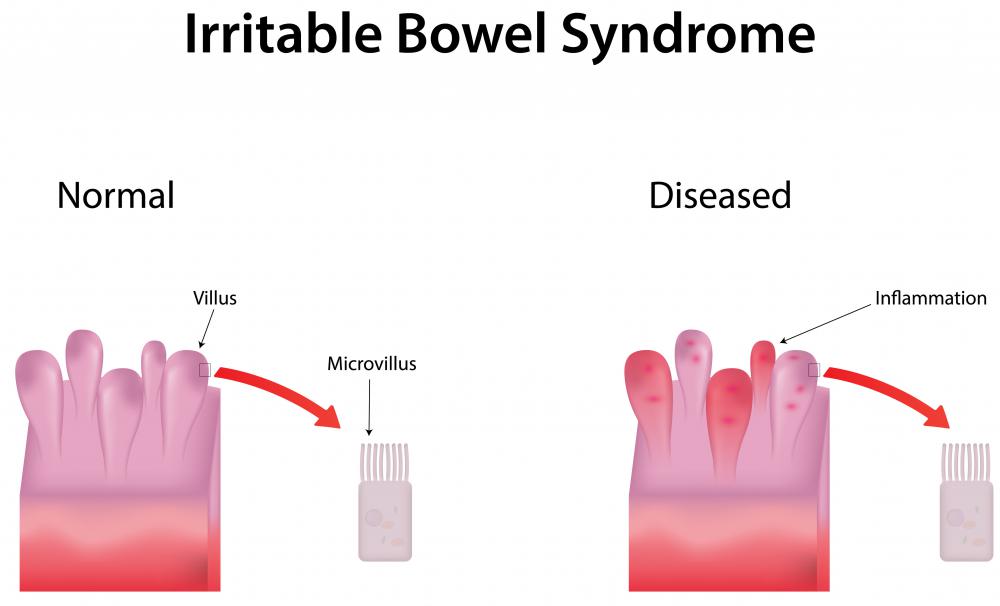At WiseGEEK, we're committed to delivering accurate, trustworthy information. Our expert-authored content is rigorously fact-checked and sourced from credible authorities. Discover how we uphold the highest standards in providing you with reliable knowledge.
What is Lactobacillus Sporogenes?
Lactobacillus sporogenes is a common name used to incorrectly categorize Bacillus coagulans, a type of bacteria that reportedly improves the pain associated with Irritable Bowel Syndrome (IBS). It is categorized as a lactic acid-forming bacterial species because it produces lactic acid when it ferments and breaks down glucose. It was first identified by scientists in 1933.
The sporogens part of lactobacillus sporogenes is derived from its ability to produce spores, which can multiply and spread. The sporogenes thrive best in temperatures ranging from 95 to 122°F (30 to 55°C). Characteristically, these resemble small, pill-shaped rods, which can interconnect and form long chains. They thrive in conditions with an acidity measure (pH) of 5.5 to 6.5, which is a common pH level in the stomach and intestines.

Reproductively, lactobacillus sporogenes thrives and multiplies in the stomach. Scientists have observed it can inhibit the multiplication of harmful pathogens, protecting the stomach from ailments such as diarrhea, constipation, or stomach cramps. From there, it multiplies and usually enters the intestinal tract, where it may have a preventative effect against potentially dangerous pathogens.

According to researchers, lactobacillus sporogenes may improve several health conditions. It has been clinically shown to reduce abdominal pain associated with IBS, a commonly reported symptom. It can also improve the proliferation of flora in the vaginal canal, preventing vaginal infections. Some evidence also suggests it can increase the body's immune response by inhibiting dangerous pathogens from infecting the stomach or intestinal tract.
In animal studies, lactobacillus sporogenes has been shown to reduce cholesterol levels. Food containing it, such as fermented milk, have been shown to lower cholesterol levels in rats. Researchers hypothesize that the sporogenes binds to cholesterol in the intestinal tract, preventing it from filtering into the blood. Researchers stress that these findings have not been replicated in humans, however.
In the Western world, lactobacillus sporogenes is considered generally recognized as safe (GRAS) by the U.S. Food and Drug Administration (FDA). The European Food Safety Authority (EFSA) has also included it on their Qualified Presumption of Safety (QPS) list, due to its reported safety. Lactobacillus sporogeens is commonly used in diet and health supplements that claim to promote intestinal flora. It is also approved by both the U.S. and European Union for use on livestock.
Some health companies claim lactobacillus sporogenes can also promote weight loss. Although it may prevent diarrhea, constipation, or stomach cramps, it has never been clinically indicated as an effective aid for weight loss. It is also commonly used in colon cleansers, which claim it can detoxify the colon. There have been virtually no studies proving it can remove or reduce intestinal toxins, and some experts argue these toxins don't even exist.
AS FEATURED ON:
AS FEATURED ON:












Discuss this Article
Post your comments